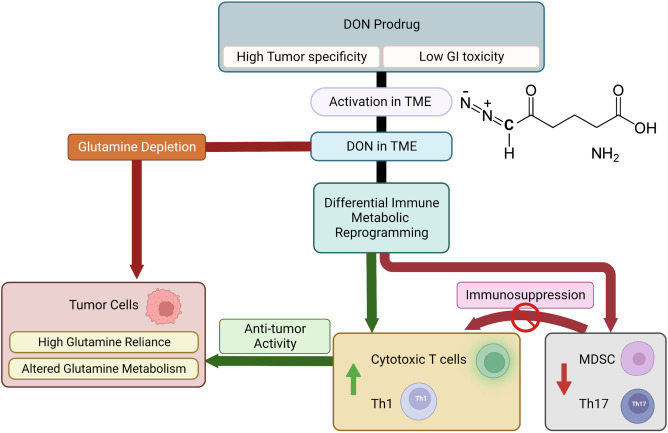
The impact of broad glutamine metabolism inhibition on the tumor microenvironment


Glutamine is an important α-amino acid that provides carbon and nitrogen sources for the biosynthesis of nucleotides, proteins, and lipids. It also generates metabolites that fuel the tricarboxylic acid cycle and maintain intracellular redox balances. Malignant cells have a heightened metabolic dependence on glutamine to support incessant tumor growth and mitigate tumor microenvironmental stresses including hypoxia, nutrient depletion, and oxidative stress. Somatic sequence mutations including MYC, TP53, Ras, NRF2/KEAP1, and PIK3CA, not only transform tumor cells but also alter their metabolic states, leading to an increased reliance on glutamine.1 Consequently, targeting the abnormal metabolism of tumor cells may be an effective strategy to starve cancer cells and induce anti-tumor effects. In this report, we highlight two recent papers that present significant advancements in the field of targeting glutamine metabolic pathways.1,2 Specifically, both research articles report the development of a promising glutamine antimetabolite and the potency of its analog in modulating the immune landscape. These findings hold great promise for further exploration and development of novel therapeutic agents that leverage the altered metabolism to treat different types of cancer.
